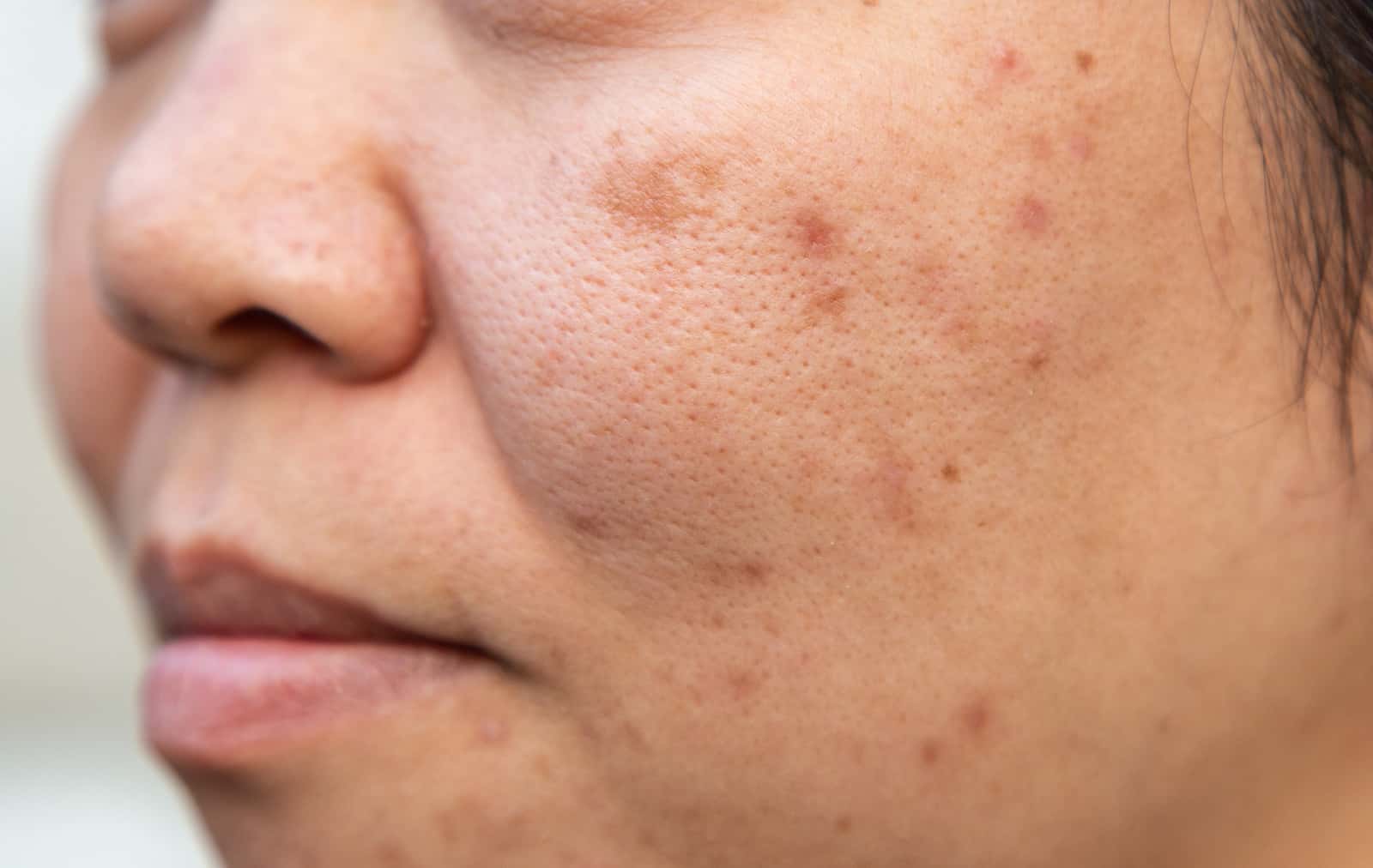
You may imagine, as many people do, that most teenagers have acne and that they grow out of it. In actuality, many adults struggle with acne. Is it possible to use a peculiar remedy, like the mouthwash Listerine, to treat adult acne?
Using Listerine to Treat Adult Acne:
Q. I have been fighting acne since high school. Now I’m 44 years old and still have acne. When I read in the newspaper that Listerine can clear up blemishes and acne, I decided to give it a try. I have been using it for the last three weeks and my skin is clearer.
A. Acne appears to result from a complex interaction among the hair follicles, the microbes that live on the skin, the oil glands, the immune system and the diet. Dermatologists have treated acne with antibiotics for decades, but many microbes are developing resistance (American Journal of Clinical Dermatology, June, 2019). Treatment with oral antibiotics reduces the abundance of Cutibacterium acnes (C. acnes) and the severity of breakouts (Journal of Clinical Medicine, Jan. 8, 2020). On the other hand, doxycycline pills have potential side effects, including alterations in the balance of microbes in the digestive tract.
How Listerine Might Help:
The essential oils in Listerine, such as thymol, eucalyptol and menthol, have antibacterial, antifungal and anti-inflammatory activity. Thymol is found not only in thyme, but also in oregano (Molecules, Aug.28, 2018). Research suggests that oregano oil can evade microbial resistance to antibiotics and help treat acne.
When you apply eucalyptol to the skin, you interfere with C. acnes and the associated inflammation (International Journal of Molecular Sciences, July 17, 2019). As a result, fewer pimples develop and they are less inflamed.
The other essential oils in Listerine, methyl salicylate and menthol, provide its distinctive odor and flavor. However, they don’t appear to have any impact on skin microbes. Perhaps thymol, eucalyptol or their combination explains why you have found it helpful to try Listerine to treat adult acne.
Previous Testimonials:
We have heard before from other readers who endorse the use of Listerine to treat adult acne. Here’s one reader’s experience:
Q. After trying lots of medications my personal physician prescribed for adult acne, I read a comment in the People’s Pharmacy column about using Listerine on the face. I tried it cautiously, being skeptical at first. Within a short time of starting to use it daily, my face cleared up for the first time in years! I used the original amber Listerine with a cotton ball dabbing gently on the areas needed. Thank you.
And another reader chimes in:
Q. I thought I’d share my experience using Listerine as an acne treatment after reading about it in your column. I have tried all types of antibiotics and topical prescriptions on the market. Nothing has worked as well as applying Listerine morning and night. Who knew it could be that simple?
A. Listerine was first brought out as a surgical antiseptic sold to doctors starting in 1879. By the early 20th century, it was being promoted to consumers as a mouthwash. It was also touted for dandruff and “bad skin.”
The herbal oils and alcohol in Listerine have antimicrobial properties, and many readers have reported success using it for fungal infections such as jock itch, dandruff and nail fungus. Other readers have also found, as you did, that it helps clear blemishes.
One reader commented:
“I chuckled when I read this article about Listerine. As a teen I remember my mother telling me to use Listerine to help the little bit of acne I had. I was blessed with very good skin and the Listerine did wonders. As an adult I have used Witch Hazel to remove makeup and clean my skin. I tend to have oily skin even as a senior citizen (thanks to my Italian heritage and olive oil consumption since birth) and this helps me a lot. I had actually forgotten about the Listerine. Thanks for jogging my memory.”
LER opined:
“The success of Listerine to treat ‘adult acne’ makes sense if it is really caused by inflammation due to fungal growth on the skin.”
Whether the offending organisms are fungal (such as Malassezia yeast like those that cause dandruff) or bacterial (such as C. acnes, previously known as Propionibacterium acnes), Listerine seems to have some activity against them.
Learn More:
To learn more about home remedies as well as medications to treat this skin condition you may want to read our eGuide to Acne Solutions. In addition, you might appreciate our interview with Dr. Crystal Aguh, a dermatologist discussing acne treatment. It is Show 1223: How to Care for Summer-Stressed Skin.
Please let us know about your experience with Listerine or other remedies for skin blemishes. Also, if you found this article helpful, you can share it using the icons at the top of the page.
Citations
- Xu H & Li H, "Acne, the skin microbiome, and antibiotic treatment." American Journal of Clinical Dermatology, June, 2019. DOI: 10.1007/s40257-018-00417-3
- Park S-Y et al, "Characterization and analysis of the skin microbiota in acne: Impact of systemic antibiotics." Journal of Clinical Medicine, Jan. 8, 2020. DOI: 10.3390/jcm9010168
- Taleb MH et al, "Origanum vulgare L. rssential oil as a potential anti-acne Ttpical nanoemulsion-In vitro and in vivo Study." Molecules, Aug.28, 2018. DOI: 10.3390/molecules23092164
- Lee EH et al, "Suppression of Propionibacterium acnes-induced skin inflammation by Laurus nobilis extract and its major constituent eucalyptol." International Journal of Molecular Sciences, July 17, 2019. DOI: 10.3390/ijms20143510

